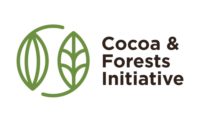Mars Wrigley has published its Cocoa for Generations progress report, detailing the company’s advancement toward an inclusive, sustainable cocoa supply chain and 100 percent of its cocoa being responsibly sourced and traceable from farm to first point of purchase by 2025.
"Too many cocoa farmers continue to face a series of challenges from poverty to child labor and deforestation," said Andrew Clarke, Mars Wrigley global president. "The impacts of climate change and global crises are exacerbating existing vulnerabilities across cocoa farming communities and beyond. This is why we aim to accelerate the transformation of the cocoa supply chain so that it benefits both people and the planet. To get there, we’re working to protect children, preserve forests and improve farmer incomes. We are challenging ourselves and the entire sector to evolve and adopt approaches that deliver greater impact where it matters most — in cocoa farming communities across Latin America, West Africa and Southeast Asia.”
The report outlines Mars Wrigley’s progress in 2021. Enabled by its Cocoa for Generations strategy, Mars Wrigley says it is committed to accelerating the transformation of the cocoa supply chain. Recently, the company launched two programs that aim to support 14,000 smallholder farmers in Côte d’Ivoire and Indonesia on a path to a sustainable living income by 2030.
“We can’t do this work alone," said Amber Johnson, vice president, Mars Wrigley Cocoa. "The shifts and the scale to reach sustained, demonstrable improvements for cocoa farming families and their communities requires thinking and collaborating in new ways. We are working to transform the cocoa ecosystem, and while we’ve made important progress to-date, we’re not done yet. Through our programs and in collaboration with key global partners, including industry peers, governments, development agencies, research institutions and civil society organizations, we’re sharing what works and what we learn along the way. We remain constructively discontent — relentless in our work to create a modern, inclusive, and sustainable cocoa supply chain. One where the environment is protected, human rights are respected, and everyone has the opportunity to thrive.”
Mars Wrigley’s progress against the goals laid out in the Cocoa for Generations strategy include two notable milestones:
- Unlocking opportunities for women. In collaboration with CARE, the Women for Change program has reached more than 77,000 members in cocoa farming communities in Côte d’Ivoire and Ghana, through its Village Savings and Loans Association program. This effort has supported almost 58,000 women, resulting in over $7.4 million in collective savings and over $3.7 million in loans distributed. These funds have been used in a variety of ways, including cocoa farming activities; household related expenses, such as access to education, health needs and nutritious food; and additional income-generating activities, including growing other crops like rice, and raising sheep, pigs and other livestock.
-
Tackling deforestation. Mars Wrigley is on its way to achieving a deforestation- and conversion-free supply chain for 100 perfecnt of the cocoa it sources by 2025.
- One effort driving the company’s progress is farm plot polygon mapping, which traces the perimeter of a farm rather than only one GPS point and results in increased traceability from the farm to the first point of purchase. By the end of 2021, almost 80 percent of cocoa plots from which Mars Wrigley sources have been mapped.
- Through its suppliers, Mars Wrigley has distributed more than 1.9 million new non-cocoa trees in 2021, helping to increase shade and biodiversity and capture carbon.
- Achieving its goal of the cocoa it sources being 100 percent deforestation- and conversion-free will deliver an estimated 20 percent reduction in Mars Wrigley’s total greenhouse gas footprint, progress towards Mars, Incorporated broader ambition of achieving a 27 percent reduction of value chain emissions by 2025, as well as net zero emissions across the full value chain by 2050.






